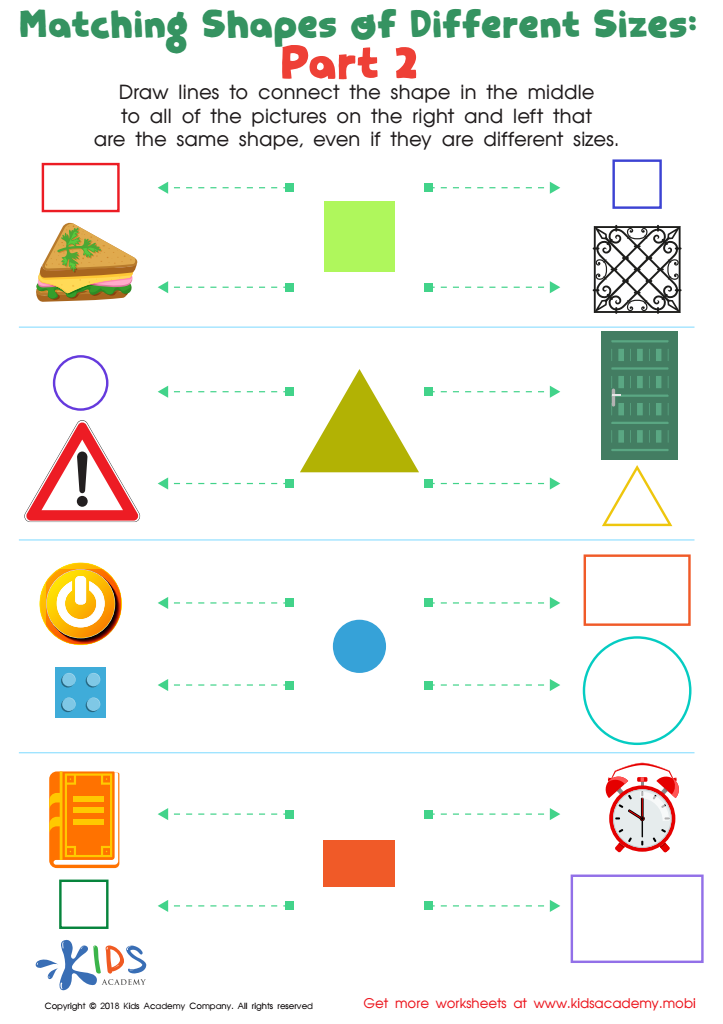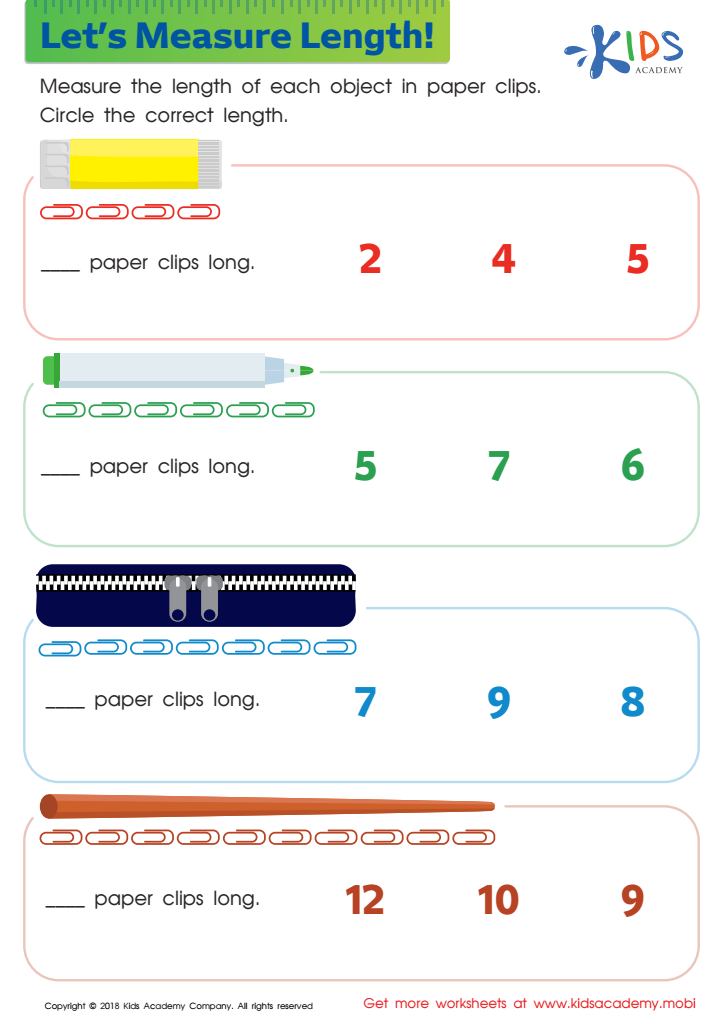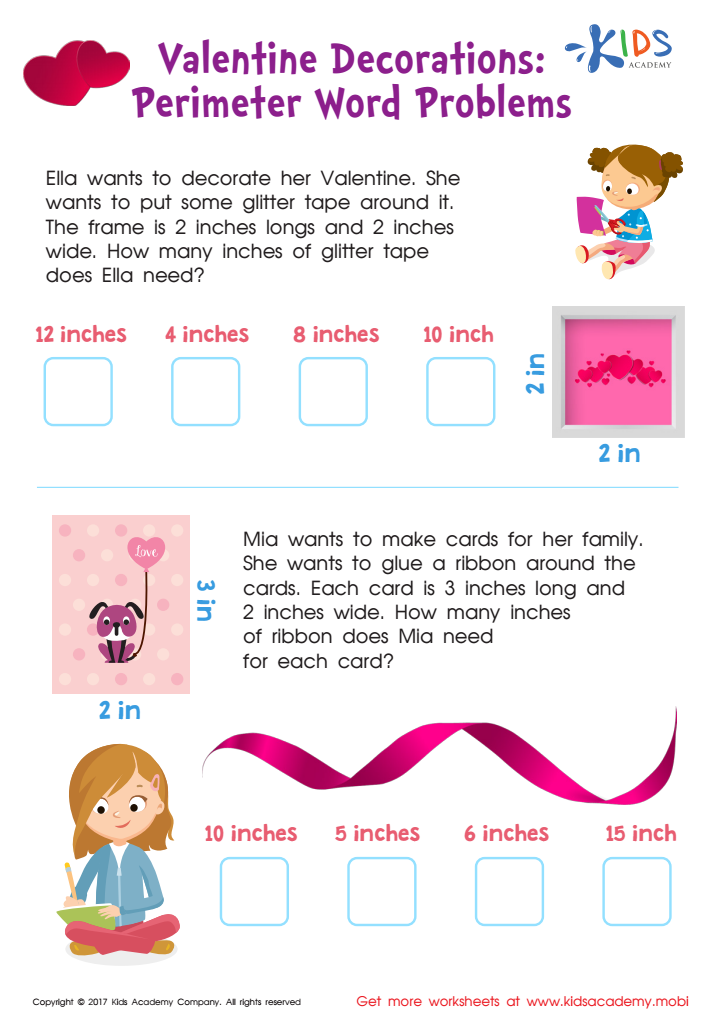Applying math concepts Worksheets for Ages 4-9
3 filtered results
-
From - To
Enhance your child's mathematical journey with our engaging "Applying Math Concepts Worksheets for Ages 4-9." Tailored to foster critical thinking and problem-solving skills, our worksheets cover a range of topics from basic arithmetic to more complex mathematical concepts. Perfect for both home and classroom use, each worksheet provides hands-on activities designed to ignite a love for math. By integrating real-world problems, our resources encourage young learners to apply math in practical situations, making learning fun and relevant. Equip your child with the confidence to tackle math challenges with our expertly curated materials.


Geometry: Part 2 Worksheet


Lets Measure Length Worksheet


Perimeter Word Problems Worksheet
Parents and teachers should care about applying math concepts for children aged 4-9 because early mathematical proficiency lays a crucial foundation for future academic success and everyday functioning. At this formative age, children's brains are highly adaptable and primed to absorb new information. Engaging with math concepts such as counting, patterns, shapes, addition, and subtraction helps develop critical thinking and problem-solving skills.
Moreover, early math skills are strong predictors of later academic achievement, not only in mathematics but also in other subjects like reading. By exposing young children to math in a fun, interactive, and pressure-free environment, we help demystify the subject, making it less intimidating and more engaging. For instance, playing with shape sorters, counting objects, or exploring simple puzzles can enhance a child's ability to recognize patterns and establish a strong number sense.
Hands-on and practical experiences in math also prepare children for daily tasks that require quantitative reasoning, such as telling time, measuring ingredients for recipes, or managing allowances. By prioritizing early math skills, parents and teachers empower children with essential tools for both school success and day-to-day life, fostering a confident and positive attitude toward learning.
 Assign to My Students
Assign to My Students




















